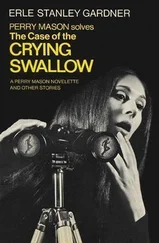In the little room were another suit, a couple of religious tracts, a rug, a chair. A picture of a saint, changing well-water to oil for Jerusalem's Easter lamps. Another bulb, dead. The bed. The mattress, waiting. She ran through then a scene she might play. She might find the landlord of this place, and bring him to court, and buy the sailor a new suit at Roos/Atkins, and shirt, and shoes, and give him the bus fare to Fresno after all. But with a sigh he had released her hand, while she was so lost in the fantasy that she hadn't felt it go away, as if he'd known the best moment to let go.
"Just mail the letter," he said, "the stamp is on it." She looked and saw the familiar carmine 8^ airmail, with a jet flying by the Capitol dome. But at the top of the dome stood a tiny figure in deep black, with its arms outstretched. Oedipa wasn't sure what exactly was supposed to be on top of the Capitol, but knew it wasn't anything like that.
"Please," the sailor said. "Go on now. You don't want to stay here." She looked in her purse, found a ten and a single, gave him the ten. "I'll spend it on booze," he said.
"Remember your friends," said the arthritic, watching the ten.
"Bitch," said the sailor. "Why didn't you wait till he was gone?"
Oedipa watched him make adjustments so he'd fit easier against the mattress. That stuffed memory. Register A…
"Give me a cigarette, Ramirez," the sailor said. "I know you got one."
Would it be today? "Ramirez," she cried. The arthritic looked around on his rusty neck. "He's going to die," she said.
"Who isn't?" said Ramirez.
She remembered John Nefastis, talking about his Machine, and massive destructions of information. So when this mattress flared up around the sailor, in his Viking's funeral: the stored, coded years of uselessness, early death, self-harrowing, the sure decay of hope, the set of all men who had slept on it, whatever their lives had been, would truly cease to be, forever, when the mattress burned. She stared at it in wonder. It was as if she had just discovered the irreversible process. It astonished her to think that so much could be lost, even the quantity of hallucination belonging just to the sailor that the world would bear no further trace of. She knew, because she had held him, that he suffered DT's. Behind the initials was a metaphor, a delirium tremens, a trembling unfurrowing of the mind's plowshare. The saint whose water can light lamps, the clairvoyant whose lapse in recall is the breath of God, the true paranoid for whom all is organized in spheres joyful or threatening about the central pulse of himself, the dreamer whose puns probe ancient fetid shafts and tunnels of truth all act in the same special relevance to the word, or whatever it is the word is there, buffering, to protect us from. The act of metaphor then was a 7 thrust at truth and a lie, depending where you were: inside, safe, or outside, lost. Oedipa did not know where she was. Trembling, unfurrowed, she slipped sidewise, screeching back across grooves of years, to hear again the earnest, high voice of her second or third collegiate love Ray Glozing bitching among "uhs" and the syncopated tonguing of a cavity, about his freshman calculus; "dt," God help this old tattooed man, meant also a time differential, a vanishingly small instant in which change had to be confronted at last for what it was, where it could no longer disguise itself as something innocuous like an average rate; where velocity dwelled in the projectile though the projectile be frozen in midflight, where death dwelled in the cell though the cell be looked in on at its most quick. She knew that the sailor had seen worlds no other man had seen if only because there was that high magic to low puns, because DT's must give access to dt's of spectra beyond the known sun, music made purely of Antarctic loneliness and fright. But nothing she knew of would preserve them, or him. She gave him goodbye, walked downstairs and then on, in the direction he'd told her. For an hour she prowled among the sunless, concrete underpinnings of the freeway, finding drunks, bums, pedestrians, pederasts, hookers, walking psychotic, no secret mailbox. But at last in the shadows she did come on a can with a swinging trapezoidal top, the kind you throw trash in: old and green, nearly four feet high. On the swinging part were hand-painted the initials W.A.S.T.E. She had to look closely to see the periods between the letters.
Oedipa settled back in the shadow of a column. She may have dozed off. She woke to see a kid dropping a bundle of letters into- the can. She went over and dropped in the sailor's letter to Fresno; then hid again and waited. Toward midday a rangy young wino showed up with a sack; unlocked a panel at the side of the box and took out all the letters. Oedipa gave him half a block's start, then began to tail him. Congratulating herself on having thought to wear flats, at least. The carrier led her across Market then over toward City Hall. In a street close enough to the drab, stone openness of the Civic Center to be infected by its gray, he rendezvoused with another carrier, and they exchanged sacks. Oedipa decided to stick with the one she'd been following. She tailed him all the way back down the littered, shifty, loud length of Market and over on First Street to the trans-bay bus terminal, where he bought a ticket for Oakland. So did Oedipa.
They rode over the bridge and into the great, empty glare of the Oakland afternoon. The landscape lost all variety. The carrier got off in a neighborhood Oedipa couldn't identify. She followed him for hours along streets whose names she never knew, across arteri-als that even with the afternoon's lull nearly murdered her, into slums and out, up long hillsides jammed solid with two- or three-bedroom houses, all their windows giving blankly back only the sun. One by one his sack of letters emptied. At length he climbed on a Berkeley bus. Oedipa followed. Halfway up Telegraph the carrier got off and led her down the street to a pseudo-Mexican apartment house. Not once had he looked behind him. John Nefastis lived here. She was back where she'd started, and could not believe 24 hours had passed. Should it have been more or less?
Back in the hotel she found the lobby full of deaf-mute delegates in party hats, copied in crepe paper after the fur Chinese communist jobs made popular during the Korean conflict. They were every one of them drunk, and a few of the men grabbed her, thinking to bring her along to a party in the grand ballroom. She tried to struggle out of the silent, gesturing swarm, but was too weak. Her legs ached, her mouth tasted horrible. They swept her on into the ballroom, where she was seized about the waist by a handsome young man in a Harris tweed coat and waltzed round and round, through the rustling, shuffling hush, under a great unlit chandelier. Each couple on the floor danced whatever was in the fellow's head: tango, two-step, bossa nova, slop. But how long, Oedipa thought, could it go on before collisions became a serious hindrance? There would have to be collisions. The only alternative was some unthinkable order of music, many rhythms, all keys at once, a choreography in which each couple meshed easy, predestined. Something they all heard with an extra sense atrophied in herself. She followed her partner's lead, limp in the young mute's clasp, waiting for the collisions to begin. But none came. She was danced for half an hour before, by mysterious consensus, everybody took a break, without having felt any touch but the touch of her partner. Jesus Arrabal would have called it an anarchist miracle. Oedipa, withno name for it, was\only demoralized. She curtsied and fled.
Next day, after twelve hours of sleep and no dreams to speak of, Oedipa checked out of the hotel and drove down the peninsula to Kinneret. She had decided on route, with time to think about the day preceding, to go see Dr Hilarius her shrink, and tell him all. She might well be in the cold and sweatless meathooks of a psychosis. With her own eyes she had verified a WASTE system: seen two WASTE postmen, a WASTE mailbox, WASTE stamps, WASTE cancellations. And the image of the muted post horn all but saturating the Bay Area. Yet she wanted it all to be fantasy-some clear result of her several wounds, needs, dark doubles. She wanted Hilarius to tell her she was some kind of a nut and needed a rest, and that there was no Trystero. She also wanted to know why the chance of its being real should menace her so.
Читать дальше












